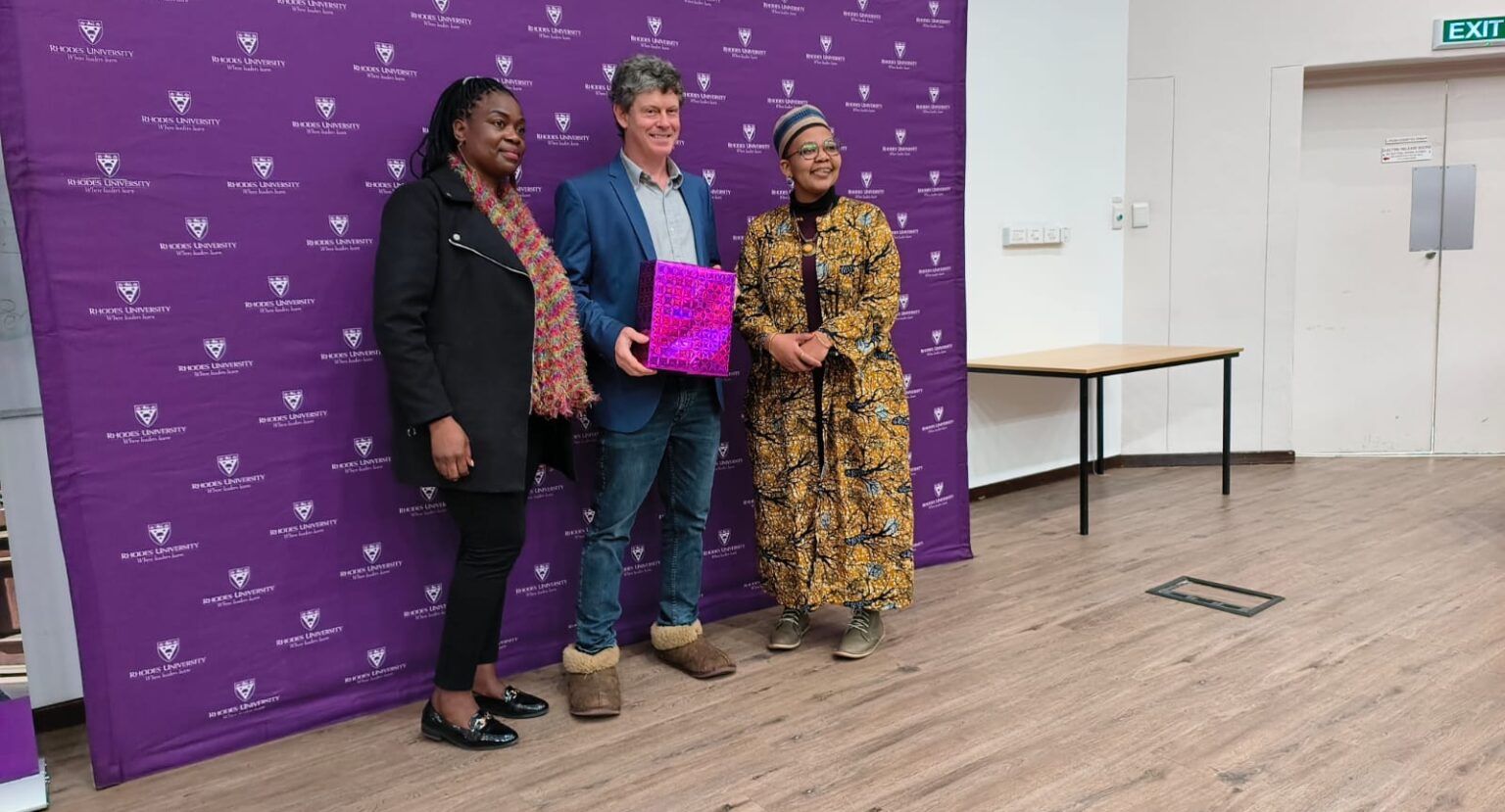By Sandile Dudu Saki
Closing off the week of teach-ins on the energy crisis organised by RU’s Department of Politics was an appearance by Makhanda brewmaster, Dr. Garth Cambray, Director of Makana Meadery. Cambray, a biotechnologist, is well-known in the town for brewing Iqhilika, a traditional isiXhosa fermented honey beverage, and used his speech to advocate for innovative advances by private companies as a solution to the energy crisis.
Cambray said with the right technology, much change can be effected. He said he has come up against much opposition in his time, including from politicians who opposed wind turbines, saying it might take too much electricity to operate them. At the teach-in, Cambray said that by publishing research you are in fact destroying it because once it is published it cannot be patented. So, his publication was instead to build a factory, a real living, breathing factory to brew iqhilika, and export the mead to America.
Beekeeping is something that people can do without causing environmental damage, he said. “I am paying people with forex that they are earning through harvesting their biodiversity through bees. That is an incredible achievement because here in South Africa we have a lot of biodiversity, and we have a lot of people. But people are under-skilled,” said Cambray.
Cambray said he believes in creating an effective business model that will in turn create quality jobs for the best people. He added that Eskom was a failing business model because it was steered by “thieves” who did not know what they were doing. He also delved into how rich South Africa is in terms of herbs and spices (natural resources). This was in fact a wake-up call for those in search of resources for alternative energy sources like biofuel, which could realistically be produced in South Africa.
However, Professor Siphokazi Magadla, head of the Politics Department, reminded Cambray that the public sector and a strong state were vitally needed by the majority of people in South Africa. She called for a global shift in the definition of success, pointing out that success based on plunder did not benefit the majority. It is seen as “normal that many white men own islands, and some white men go on adventure trips costing thousands and thousands to go and look at the ruins of the Titanic, while hundreds of Africans are sinking in the Ocean”. She told Cambray that while it was obvious that the state was sinking, it was ordinary African people who would crash with the state if this was allowed to happen.


